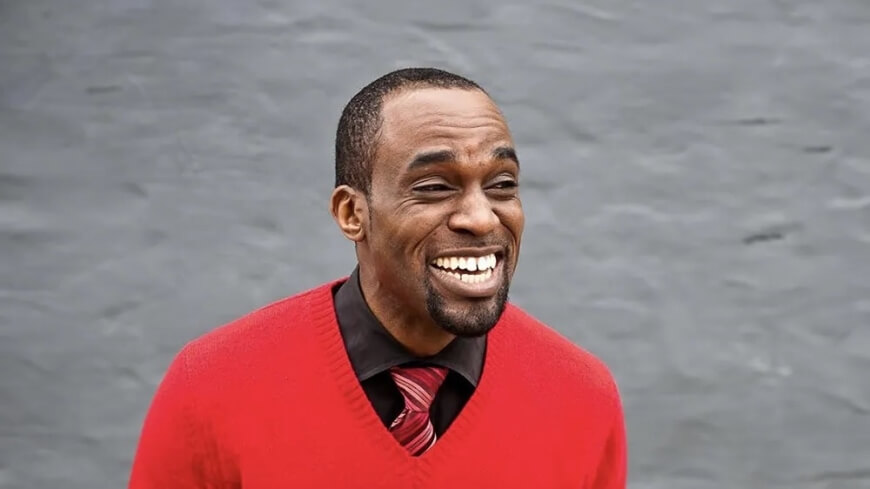News
Victor Udoewa, S.B. '99
Victor Udoewa, S.B. ‘99, learned an important lesson about design on a pair of trips to El Salvador. A teacher at Yes Prep Public Schools in Houston at the time, Udoewa organized a summer trip to El Salvador for some of his students. They designed a set of dual-composting latrines, which were meant to decompose waste into fertilizer to help the agrarian community.
When Udoewa went back to El Salvador a year later, he discovered some of the latrines weren’t being used as intended.
“I remember visiting one family who used the dual-composting latrine as a closet, and I met another that used it as a bathroom for VIPs,” said Udoewa.
That experience taught Udoewa that technical feasibility is only half the battle in addressing a societal need. The solution also has to be something the community will want to use, and use it in the intended way.
Udoewa, who studied mechanical engineering at the Harvard John A. Paulson School of Engineering and Applied Sciences (SEAS), draws on that lesson every day in his current work. In his day job, he works for the Office of Public Health, Data, Surveillance and Technology at the Centers for Disease Control and Prevention. As a side project, he runs Justice by Design, a public benefits company and social enterprise which has undertaken a number of projects oriented towards social impact.
“I have a project on addressing generational racialized trauma in the rural south, which is based in North Carolina,” said Udoewa. “I have another project on building and creating a socially equitable, racially just parent-teacher association (PTA). We’re trying to look at what it could look like for a PTA to make decisions that include all caregivers at all different levels of digital literacy, reading and writing literacy, native language abilities, internet and technology access, and time availability.”
Udoewa first became interested in engineering through his love of space.
“I started thinking about what we use to go to space, and who builds them,” he said.
After graduating from Harvard, Udoewa pursued his PhD in computational fluid dynamics at Rice University, partially funded by NASA.
After completing his postdoctoral fellowship at the University of Cape Town in South Africa, Udoewa worked at the Department of Homeland Security, the U.S. Agency for International Development and 18F, a digital services agency in the General Services Administration. He also spent close to four years at Google as a Global Education Instructional Designer & Training Development Specialist before landing at NASA as a chief technical officer, chief experience officer, and service design lead.
The type of design I do, which I call radical participatory design, is one in which participation is all the way from the beginning to end. The community members are full-fledged members of the team.
Throughout all of these experiences, Udoewa has tried to focus on outcomes and community involvement. Involving his client communities in the design process increases the likelihood that the final product will be something the community not only needs, but will want to use. And by focusing on outcomes, he’s making sure the solution is actually having the desired effect.
“The type of design I do, which I call radical participatory design, is one in which participation is all the way from the beginning to end,” Udoewa said. “The community members are full-fledged members of the team. It brings that lived knowledge, wisdom and experience onto the team, so that it’s just not based on my mainstream institutional knowledge. I’ve had a number of projects in which I’ve designed and developed a technology in a civic space or public sector, but the technology didn’t have the social impact I wanted. You can create a really beautiful, cool and intuitive app, but it doesn’t actually get more kids into foster homes, or it doesn’t decrease the number of people experiencing homelessness.”
Udoewa’s current work focuses on redesigning how health data is exchanged between labs, hospitals, healthcare providers, various levels of government and the CDC. He also looks at how artificial intelligence, machine learning and data operability can help improve government response times during an epidemic or pandemic.
“I really thrive in environments where I’m getting input and conversations from people in many different fields. Sometimes I know what is or isn’t possible and limit myself because of that, so it’s good to hear from people who are outside my environment, don't know the limits, and are therefore able to break beyond those bounds,” said Udoewa.
Topics: Alumni, Design, Materials Science & Mechanical Engineering
Cutting-edge science delivered direct to your inbox.
Join the Harvard SEAS mailing list.
Press Contact
Matt Goisman | mgoisman@g.harvard.edu



